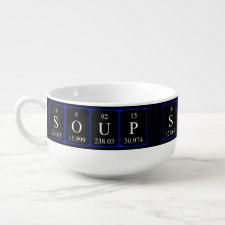
Authors: Zhou QT, Guo M, Wu SC, Fornara D, Sarkar B, Sun LP, Wang HL
Article Title: Electrochemical sensor based on corncob biochar layer supported chitosan-MIPs for determination of dibutyl phthalate (DBP).
Publication date: 2021
Journal: Journal of Electroanalytical Chemistry
Volume: 897
Article Number: 115549.
DOI: 10.1016/j.jelechem.2021.115549
Alternative URL: https://www.sciencedirect.com/science/article/pii/S1572665721005750
Abstract: A highly selective and sensitive electrochemical sensor (MIP-DBP-CTS/F-CC3/GCE) for dibutyl phthalate (DBP) detection was prepared. Firstly the functional corncob biochar (F-CC3) was cast on a glassy carbon electrode (GCE) to form F-CC3 film. Then, the pretreated GCEs were further modified by molecularly imprinted polymers synthesized with CTS as functional monomer, DBP as the template molecule, glutaraldehyde as the crosslinking agent. The MIP-DBP-CTS/F-CC3/GCE sensor was characterized by cyclic voltammetry (CV), differential pulse voltammetry (DPV), and electrochemical impedance spectroscopy (EIS). The results showed that the utilization of conductive F-CC3 as interlayer spacers efficiently inhibited the aggregation of CTS and formed a well-defined porous structure, as a result of increasing the effective surface area, an enhancement of the electrical conductivity was observed. This sensor takes advantages of molecularly imprinted technique and F-CC3 biomass materials to achieve high selectivity and high sensitivity for the determination of DBP. The as-prepared molecular imprinting sensor, under the optimized conditions, presented a good linear relationship (R2 = 0.9929) between the response current Δ I and the DBP concentration ranging of 0 ~ 1.8 μM with a limit of detection (LOD) of 0.0026 μM. Besides, this newly developed sensor was utilized for the detection of DBP in rice wine purchased in the market with satisfactory results
Template and target information: dibutyl phthalate, DBP
Author keywords: F-CC3, molecularly imprinted polymer, Electrochemical sensor, Dibutyl phthalate



Join the Society for Molecular Imprinting

New items RSS feed
Sign-up for e-mail updates:
Choose between receiving an occasional newsletter or more frequent e-mail alerts.
Click here to go to the sign-up page.
Is your name elemental or peptidic? Enter your name and find out by clicking either of the buttons below!
Other products you may like:
 MIPdatabase
MIPdatabase









